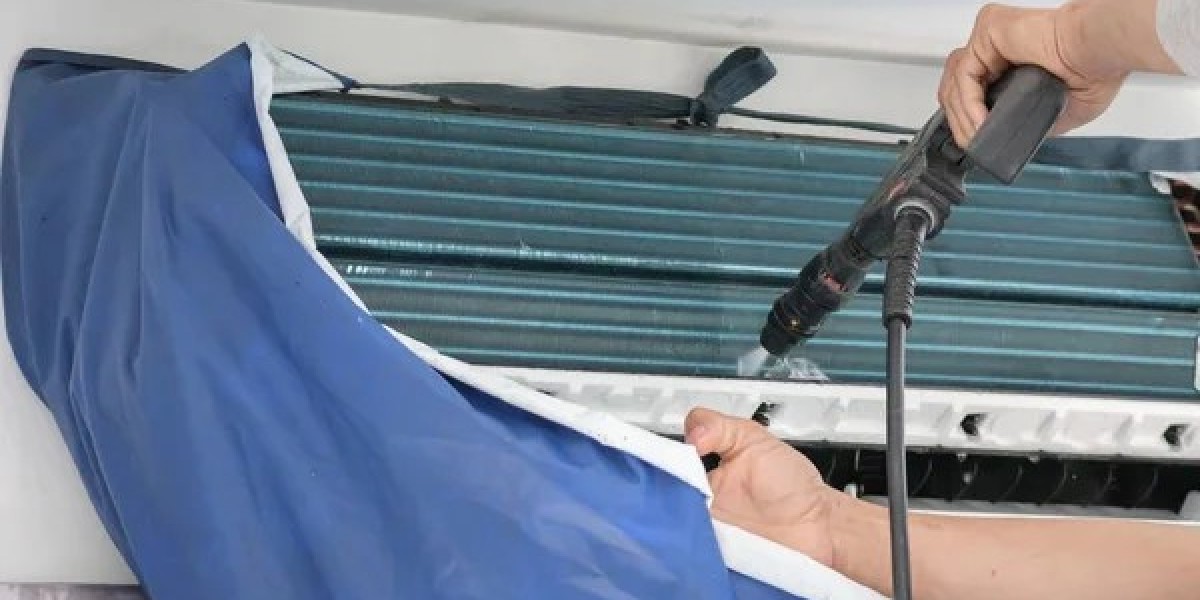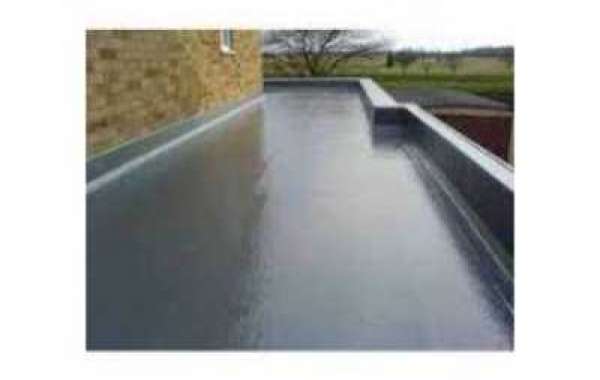Exhaust cleaning is a crucial aspect of maintaining your HVAC system's performance, ensuring that it operates efficiently and provides optimal airflow throughout your space. Regular cleaning of exhaust vents and ducts can drastically improve energy efficiency, enhance air quality, and reduce the risk of system breakdowns.
In this article, we will delve into how exhaust cleaning can significantly impact airflow and efficiency, benefiting both your HVAC system and your overall home or business environment.
What Is Exhaust Cleaning, and Why Does It Matter?
The Role of Exhaust Cleaning in HVAC Systems
Exhaust cleaning refers to the process of removing accumulated dirt, dust, lint, and other debris from the exhaust ducts and vents within your HVAC system. Over time, pollutants can build up, obstructing airflow and reducing system performance. Exhaust cleaning is a preventive maintenance task that helps maintain optimal airflow and prevents clogs that could cause your HVAC system to work harder than necessary.
By ensuring that air can circulate freely through the ducts, clean exhaust systems improve the efficiency of your HVAC system, enabling it to cool or heat your space more effectively. Regular exhaust system maintenance is essential for keeping your HVAC unit in top condition, ultimately leading to a more comfortable and energy-efficient environment.
How Dirty Coils Impact HVAC Performance and Efficiency
When exhaust ducts and ventilation systems are clogged with debris, the airflow becomes restricted, causing the HVAC system to work harder to maintain the desired temperature. This not only strains the system but also leads to higher energy consumption and potential wear on internal components.
Additionally, dirty exhaust systems can lead to poor air quality, as dust, mold, and other contaminants are circulated back into the indoor environment. Keeping the exhaust system clean ensures optimal airflow and supports the efficient operation of the entire HVAC system, preventing the buildup of harmful particles in the air.
How Exhaust Cleaning Improves Airflow and Efficiency
Enhancing Airflow Through Clean Exhaust Vents
One of the most immediate benefits of exhaust cleaning is the improvement in airflow. Airflow optimization is critical for the proper functioning of HVAC systems.
When the exhaust ducts are clogged, the system has to work harder to push air through the vents, reducing its overall efficiency. Clean exhaust vents enable the air to flow freely, ensuring that the HVAC system can circulate the air more effectively throughout the space.
By eliminating blockages, clean ducts contribute to optimal airflow, allowing your system to cool or heat your space more quickly. This helps to maintain a more consistent indoor climate, enhancing the comfort of your home or business.
Maximizing HVAC System Efficiency with Regular Exhaust Cleaning
A well-maintained HVAC system can operate at peak efficiency, which means it consumes less energy to provide the same level of comfort. Clean exhaust ducts reduce airflow obstructions, allowing your HVAC system to function as designed without straining to push air through clogged ducts. This results in improved efficiency, reduced energy bills, and less wear on the system.
Over time, exhaust cleaning prevents the system from becoming overworked, which can help extend the lifespan of your HVAC system. The more efficiently your HVAC unit runs, the fewer repairs it will need, saving you money in the long run.
The Role of Exhaust Cleaning in Energy Efficiency
Energy-efficient HVAC systems rely on smooth, unobstructed airflow to operate optimally. Regular exhaust system maintenance ensures that your HVAC system uses the least amount of energy possible to achieve the desired temperature. By reducing energy consumption, exhaust cleaning helps lower utility bills and supports environmentally friendly practices.
When your HVAC system is running efficiently, it requires less power to cool or heat your space, which not only saves money but also reduces your home’s carbon footprint. Regular cleaning is an investment that pays off with long-term savings and a greener environment.
When Should You Schedule Exhaust Cleaning for Your HVAC System?
Signs That Indicate Your Exhaust System Needs Cleaning
There are several telltale signs that indicate your exhaust system needs cleaning:
Reduced airflow: If you notice a drop in airflow or the system is taking longer to cool or heat your space, it may be time for an exhaust cleaning.
Higher energy bills: When exhaust ducts are clogged, your system works harder to maintain the desired temperature, leading to higher energy consumption.
Strange odors: Musty or unusual smells from the HVAC system can indicate mold or mildew buildup in the exhaust ducts.
Increased dust or allergens: A buildup of debris in the exhaust vents can cause dust and allergens to circulate in the air, negatively affecting indoor air quality.
How Often Should Exhaust Vents Be Cleaned?
The frequency of exhaust cleaning depends on several factors, including the type of HVAC system, its usage, and the environment. As a general guideline:
Residential HVAC systems: Cleaning once a year is typically sufficient for homes with moderate use.
Commercial HVAC systems: These systems often require more frequent cleaning, typically every 3 to 6 months, due to higher usage and greater environmental contaminants.
If you live in a particularly dusty area, have pets, or experience high humidity, you may need to clean the exhaust ducts more frequently to maintain efficient airflow and good air quality.
Benefits of Regular Exhaust Cleaning for Your HVAC System
Improved Indoor Air Quality and Health
A clean exhaust system not only improves airflow but also enhances indoor air quality. Exhaust system maintenance helps reduce the circulation of dust, mold, allergens, and other harmful particles in the air. This is especially important for individuals with allergies or respiratory conditions, as it helps create a healthier living environment.
By ensuring that your HVAC system filters air properly and efficiently, exhaust cleaning improves the quality of air in your home or business, providing a cleaner and more comfortable space for you and your family or employees.
Increased Lifespan of Your HVAC System
By regularly cleaning the exhaust system, you help maintain the overall health of your HVAC system. Preventing dirt and debris from accumulating reduces strain on the system, helping to extend its lifespan. Routine maintenance can also prevent more costly repairs by identifying potential issues early before they lead to serious damage.
Cost Savings from Energy-Efficient HVAC Systems
Regular cleaning ensures that your HVAC system operates efficiently, which helps reduce the overall energy consumption. Lower energy bills are one of the most significant benefits of exhaust cleaning. By keeping your HVAC system running efficiently, you avoid the high costs associated with unnecessary energy use and frequent repairs.
How Exhaust Cleaning Contributes to Sustainable and Eco-Friendly Living
Reducing Energy Consumption with Clean Exhaust Systems
Exhaust cleaning contributes to sustainability by ensuring your HVAC system uses the least energy possible. Energy-efficient HVAC systems consume less power to maintain the desired temperature, which reduces the amount of energy required for heating and cooling. This helps lower your carbon footprint and supports eco-friendly living practices.
The Environmental Impact of Dirty Exhaust Systems
Dirty exhaust systems increase energy consumption and contribute to higher levels of emissions. When HVAC systems have to work harder due to obstructed airflow, they use more energy, which increases carbon emissions. Regular cleaning helps mitigate this impact by improving efficiency and promoting greener practices in your home or business.
Professional Exhaust Cleaning Services: Why Hire an Expert?
What to Look for in a Reliable Exhaust Cleaning Service
When choosing a professional exhaust cleaning service, it’s essential to look for experience, certifications, and positive reviews. Ensure that the company uses the latest equipment and techniques for thorough cleaning, and verify that their technicians are properly trained to handle HVAC systems safely and effectively.
The Benefits of Expert HVAC Cleaning Services
Hiring a professional for exhaust system maintenance offers several advantages:
Thorough inspection: A professional service will thoroughly inspect your HVAC system, identifying any underlying issues that may not be apparent.
Expert cleaning techniques: Professional cleaners use specialized tools and equipment to ensure the job is done correctly, reducing the risk of damage.
Time-saving: Professional services are efficient, saving you time and effort, while providing peace of mind knowing that your system is properly cleaned.
FAQs
What is exhaust cleaning in HVAC systems?
Exhaust cleaning involves removing debris, dust, and other contaminants from the exhaust ducts of your HVAC system to ensure optimal airflow, efficiency, and air quality.
How often should I clean my HVAC exhaust vents?
It is recommended to clean exhaust vents at least once a year for residential systems. Commercial systems or homes with high dust levels may require cleaning every 3 to 6 months.
Can exhaust cleaning improve my energy bills?
Yes, clean exhaust ducts allow your HVAC system to operate more efficiently, which reduces energy consumption and lowers utility bills.
What are the signs that my exhaust system needs cleaning?
Signs include reduced airflow, higher energy bills, strange odors, and an increase in dust or allergens circulating in the air.
How does exhaust cleaning improve indoor air quality?
By eliminating dust, mold, and other contaminants from the ducts, exhaust cleaning improves airflow and reduces the circulation of harmful particles in the air, enhancing indoor air quality.
Should I clean my HVAC exhaust vents myself or hire a professional?
While you can perform basic maintenance, it's highly recommended to hire a professional for thorough and safe cleaning.
Can clean coils improve my HVAC system’s performance?
Yes, clean coils ensure that your HVAC system can maintain efficient airflow, improving overall performance and cooling efficiency.
How does exhaust cleaning prevent system failure?
Regular exhaust cleaning prevents dirt and debris from obstructing airflow, reducing strain on the system and preventing overheating, which can cause system failure.
How does clean airflow contribute to my home’s comfort?
With clean exhaust ducts, your HVAC system can regulate temperature and humidity more effectively, leading to a more comfortable indoor environment.
How can exhaust cleaning reduce the risk of fire hazards?
By removing lint and debris from the ducts, exhaust cleaning helps prevent blockages that could potentially cause overheating or fire hazards.









